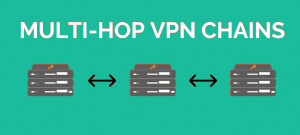Tor vs VPN: Which should you pick? | Guru Advice
Many users who seek anonymity and the protection of their privacy on the web often go for any of these two options. They either choose to use Tor or they go for a reliable VPN service. Both of these are the best options to protect users’ privacy with each having its own pros and cons.
Considering this fact that these are the two most reliable options, I m bringing a Tor vs VPN piece for you so you can know everything you need to know about the two. In our VPN vs Tor article, I am going to discuss what Tor is and how it works. Then I am will move on to the Tor vs VPN comparison with pros and cons of each.
Many of our readers already know about what a VPN is and how it works. I have discussed it numerous times, but still anyone’s willing to know about VPN, I have briefly defined about what is a VPN and how it works.
What is a VPN?
A VPN is an abbreviation of Virtual Private Network, it protects your online privacy and security via an encryption that hides your IP and your communication with the server. This is done routing your connection through a different server.
How does a VPN work?
Whenever you go online you give away your location to the server you are connecting to. A VPN has a network of servers which are located in different countries. When you connect through a VPN it passes your data through one of its own servers before going to its online destination. Similarly, every information sent your computer also passes through the same server of the VPN provider’s server that you have selected. This makes you appear in a different location because of the VPN server’s different IP address. Additionally your messages are also encrypted which prevents third parties from accessing it.
What is Tor?
Most of the people ask two main questions about Tor, so I would like to answer those first. Yes, Tor is a free service. Yes, it is really effective in protecting your privacy on the web. Tor, basically is an anonymity network which helps users access the web with complete anonymity. The netizens use their free software to be anonymous on the web using the Tor network.
When someone uses Tor, their signals route through many nodes. Each of these nodes only see the apparent IP addresses which are of the previous node and the next node. At no point can anyone see or know about the exact path of the connection. This is the main reason why users become anonymous using Tor.
Unlike VPN, where the provider knows about the IP address and can also see the traffic at the exit point i.e. the VPN server, Tor network uses multiple nodes on random basis so the path between the destined site and the real computer cannot be traced by anyone.
Tor is the acronym of The Onion Router. This term was made by the US Navy and it refers to the data encryption in multiple layers and then the multiple times re-encryption of it while it randomly passes through various nodes. This is one of the primary reasons why it is considered to be a really reliable and secure way to browse the web, as it does make users anonymous.
Now that you have understood about what Tor is, let’s dig deeper into its functionality and know how Tor works in the next section.
How Tor Works?
As I have mentioned above that the Tor network consists of various nodes, a single connection in Tor goes through various nodes which encrypts the connection each time it connects to a new node. A node can only know about the IP address of previous and the next node. So, there’s no one which actually know about the real path of the whole connection.
These nodes are run by volunteers and as many the nodes would be, the more secure the network would become. Additionally, the relay circuits of these nodes reset in every ten minutes so that your activities cannot be traced in any possible way.
By the help of these many nodes and passing signals through multiple on the random basis, Tor network makes the users completely anonymous and secure on the web. However, it is still not the most preferable solution for the privacy concerned users. Let’s find out about why is this the case in the next section i.e. Tor vs VPN.
Tor vs VPN
When I talk about the comparison between Tor and VPNs, we mainly do it on the grounds of privacy protection and being able to access the geographically restricted content. Both, VPN and Tor, have very similar purposes, but they have very different approach to it.
You have seen how VPN works and now you also know how Tor works, so it should be easy for you to see through this VPN vs Tor battle. To make it easier, we are going to list the pros and cons of each down below.
Advantages of Tor
- Tor is completely free and reliable to use
- It is almost impossible to trace your original IP through the external IPs you utilized
- It is hard to attack Tor network because of its distributed network processes
Disadvantages of Tor
- The speed is extremely slow because of multiple hoping on nodes and re-encryption of data
- Ideally, it is perfect for downloading torrents, but practically it is not suitable because of the slow speed and it slows down the entire network with it
- Tor can be used for location spoofing, but it is not ideal for it
- Accessing geographically restricted sites is possible with Tor, but streaming with such slow speed would be extremely painful
Advantages of VPN
- It is fast, significantly fast in comparison to the Tor network
- Location spoofing is very easy and precise as the users get to choose their desired servers
- The connection is fast so the streaming on geo blocked sites is actually a good experience
- Great for torrenting as it helps users to be anonymous and give good download speed
Disadvantages of VPN
- It costs some money for a reliable and fast service
- A VPN provider can see your activities and real IP address. So, you should go for a truly no logs VPN services which is trustworthy and is not located in the 14 eyes countries.
When to choose VPN over Tor?
You should choose a VPN over Tor whenever doing the following,
- logging in to your online banking account
- p2p and filesharing
- while connected to a public wi-fi
- Traveling to countries that have internet censorship like China
- Shopping online.
A good VPN will always protect your data and online security. In addition to this, VPN has better speeds then tor and most of the offer technical support in case you run into a problem whereas Tor does not.
When to choose Tor over VPN?
For a user whose intent to use the internet is for accessing blocked websites or adding an extra layer of security then a VPN gets the job done just fine. I don’t see any reason why anyone would opt for Tor as its difficult to setup.
However, Tor works fine when you are looking for complete 100% anonymity. You could be a journalist that could be working on uncovering something sinister. You would need it to protect your identity online and avoid risks to your life. Powerful organizations and governments can lean on a VPN to give up your information but only few have the power to even attempt to track you down while you use Tor.
What I am trying to say is Tor works best when you 100% security is the only thing you are looking for. For everything a VPN works just fine.
Some of the advantages which makes Tor over VPN are:
- Complete and 100% anonymity
- Free of Cost
- Easy to setup if you are using a Tor Browser.
Tor vs VPN: The Verdict
In my opinion a VPN works best if you are an average internet user. But when the stakes are high and your life depends on that you get 100% anonymity then Tor is what you should be going for. I have discussed how Tor works and I compared its functionality with a VPN in terms of advantages and disadvantages. The biggest problem with using the Tor network is that the connection speed becomes extremely slow. This is the biggest issue with the Tor network, which is why many users do not prefer it and go for a VPN service.
![How to Bypass ISP Throttling and Improve Internet Speed? [Updated 2020]](https://www.bestvpnguru.com/wp-content/uploads/2018/08/bypass-isp-throttling-297x300.png)


